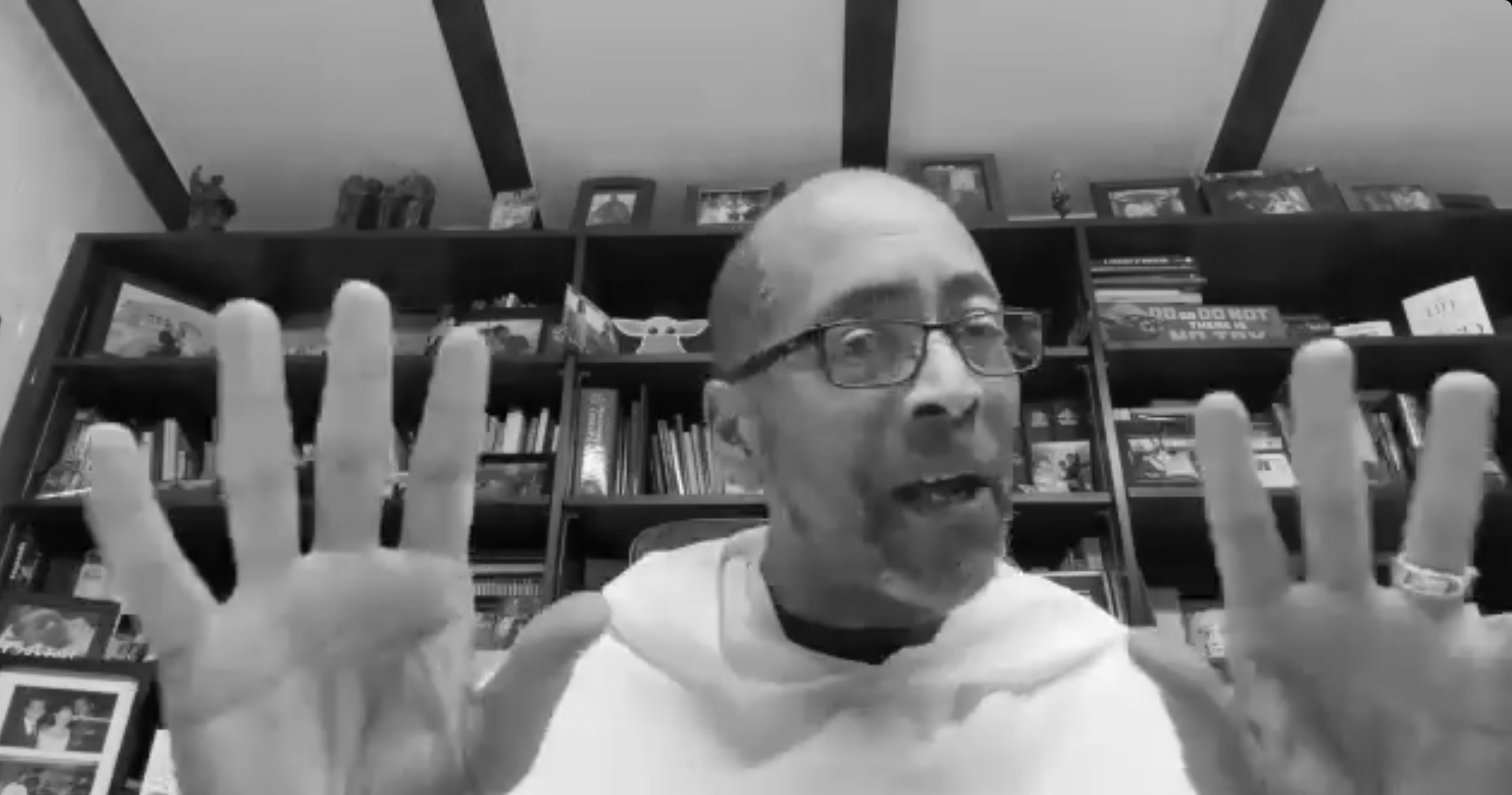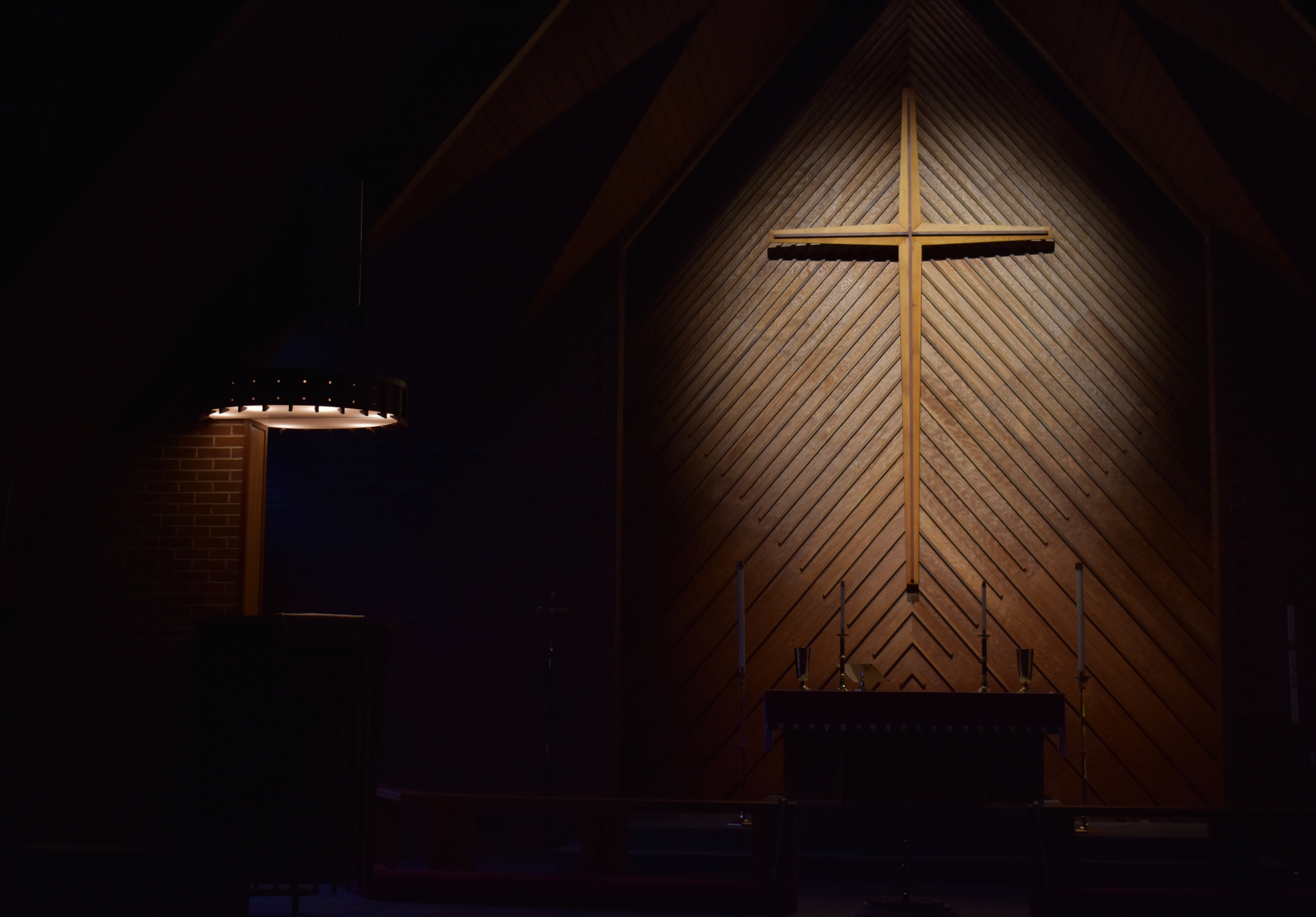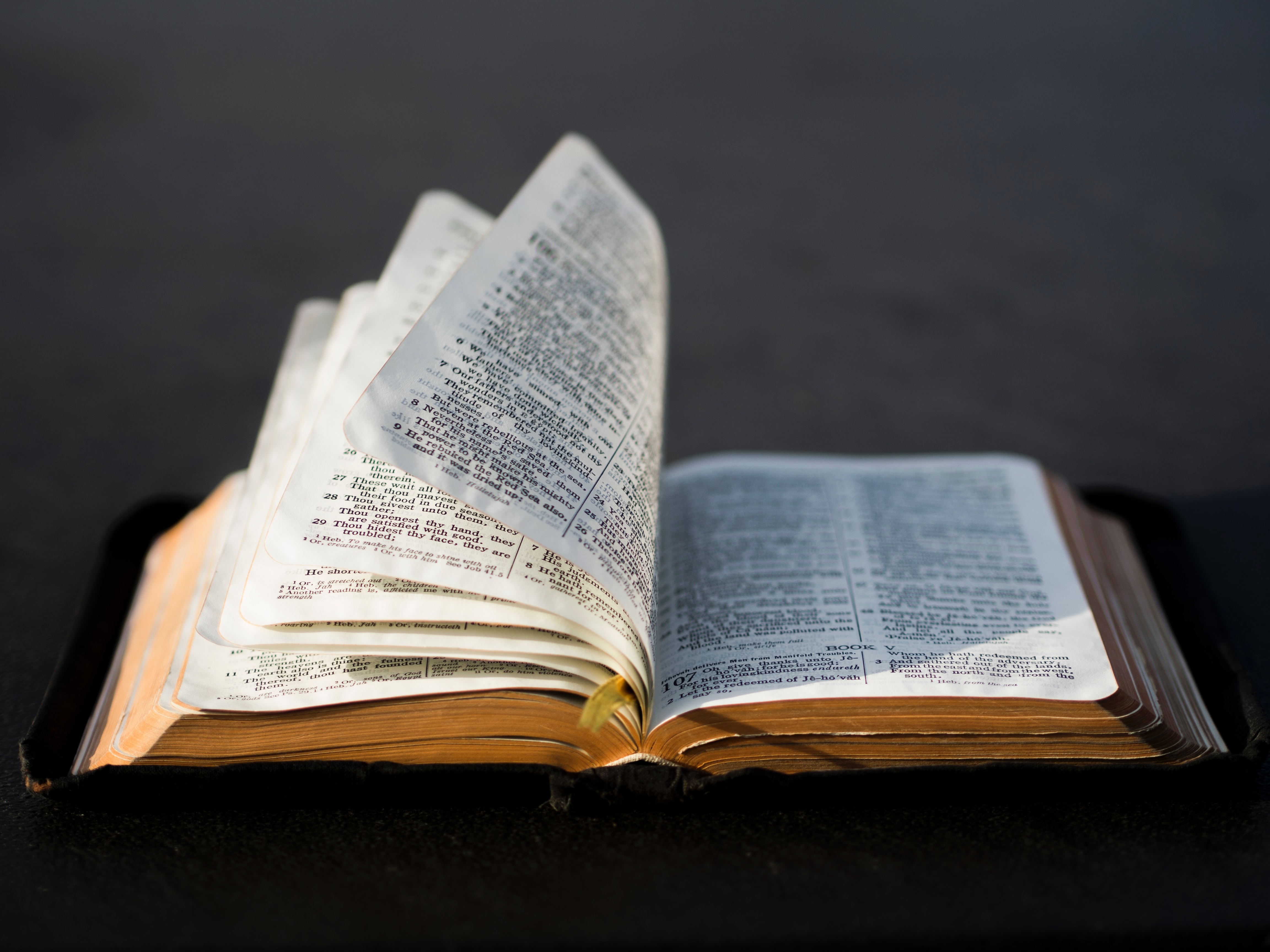"You cannot preach a God that is willing to feed the people if the people are hungry...We have to work hand by hand with the people so that the Gospel can have a much more clear message to them."
As a Maryknoll seminarian, Diego Ramirez talks about his experience serving and accompanying communities abroad. Diego defines or redefines what "missionary work" means and how Christians can connect with our fellow neighbors.
This episode is a continuation of the conversation with Maryknoll Seminarian Diego Ramirez where we discuss missionary work, prayer, Christian art, and how we encounter God in all things and people.
The following are edited excerpts and outline of the conversation from the “What is Missionary Work?” part 1 podcast interview.
[00:00:15] Diego, you are with Maryknoll, which is described as an international Catholic missionary movement. How do you define or redefine missionary work?
Well, yes, my name is Diego Ramirez. I am my seminarian for Maryknoll Fathers and Brothers. We are the Catholic Forward Mission Society of America. And we’ve been around for more than 100 years. Our founders were Bishop Walsh and Father Price, who had a dream of sending missionaries overseas for the missions. Our first mission was in China and parts of Asia. And eventually, it spread all over the world.
I just had the opportunity of being on my overseas mission experience, which is part of our formation program here with Maryknoll. Once you have your philosophy degree done, then you go into a one -year spirituality program. It’s not really like a novitiate, like other congregations will do, because we are not a religious congregation. We don’t make vows like formal religious congregations do. But we are not diocesan either. We’re just a society of apostolic life. So we do this spirituality here and after that we have a two-year program where candidates are sent overseas for a mission experience.
And for myself, this took place in Cochabamba, Bolivia. So I was there for a two -year period. I came back to the US, August of last year. So I’ve been back for almost a year now, now finishing up my theological studies.
Nowadays, what does being a missionary mean? Well, first of all, I’ve said this before in many places and people kinda just look at me and say, what are you saying? I tell people, well, the word missions or missionary, I think it shouldn’t be no longer used. It is outdated. That was from the 1500s, maybe till 1970, 1965. After that, the word missionary just brings a very, how can I say it, a wrong idea of what being a missionary is.
People think that being a missionary is going out there to the desert lands of Africa or the jungles of Latin America or unknown places of Asia to make people Christian…But 2022, what really is being a missionary? Or what really, what are the missions? And I tell people, well, missionaries, that word is no longer needed. As missionaries, we are no longer there to convert people. We are there to be companions in the journey of the people. We’re there to learn. We are students. We are not the teachers. We don’t get off the plane with the Bible on the right and the crucifix on the left and say, “you’ll have to repent. Here’s Jesus Christ. Here’s the Bible. Here’s the Rosary.” That’s over.
You are there to learn from the people. You’re a guest of their culture. You’re a guest of their own villages, of their own towns. And like I said, you are not bringing God. God was there since the beginning of the world. Some people say, “oh, yeah, the missionaries brought us faith.” The faith was already there. Maybe the God was not the same, was not named the same, but it was the same God. It was the same God creator of all.
People in South America can call it Pachamama…but it’s the same God. Humanity has had this longing for God since they were created. So like I said, we are not taking God to any villages. We are not taking God to any culture because God was already there. So like I said, in my own experience, being in Bolivia, upon my arrival, I learned one of the native languages, which is Quechua.
I’m a native Spanish speaker. So being in Bolivia, to me at first, was not really matching up, because I said, I’m not being challenged. I’m in a country that speaks Spanish, a country that’s Latin American country, like the way I grew up. But then, like I said, I engaged in learning the native language of the people, which is spoken, I would say, for about maybe 60% to 70% of the population in Bolivia. And that was an awesome experience, being able to minister to the people in their own languages, because even the local clergy, priests and brothers and sisters, the majority of them did not speak Quechua, even though they were Bolivian born.
There’s a cultural, how would I say it, dilemma with speaking the ancient tongues. People don’t want to do it anymore. So they’re kind of losing that part of their ancestry and their culture. But I was there for two years, and I was able to learn Quechua. And I was able to also work in the medical field. I am a doctor. Before coming into Maryknoll I had a medical degree in forensic sciences. So upon my arrival in Bolivia, a couple of months later, I would say about six months later, that’s when the pandemic struck the region where I was and I was able to get my credentials transferred to the Bolivian health care system. And I was doing, I was ministering to the people of the small towns out of the cities where really nobody wanted to go.
And that’s what I was doing pretty much, like I said, for about a year and a half. And I mean, I don’t want to say that that’s the greatest thing that you can ever do. But I think it’s just a way of being a friend to the people. It’s just a really, it’s a way of approaching necessity. That’s one of the things that our founding fathers always would write on their letters. That was something that they would always encourage the missioners. And they would always tell us, be flexible. What does flexible mean? To them, flexibility meant that you have to accommodate to the necessities of the people, of the time, of the place.
If you’re traveling to a place where water is needed, we’ll get to work to get the water to the people. If you go to a place where a school is needed, well, guess what your work is going to be? Getting that school in there. Like I said, because sometimes when we think about mission work is, oh, you’re going to be at the parish, you’re going to be saying Mass, you’re going to be converting people, you’re going to be baptizing a whole lot of children, and you’re going to be preaching the rosary and Virgin Mary and the saints and the church. And that’s really nice. And that’s really good.
I’m not saying it shouldn’t be done but there’s a lot of social structures that also have to be covered…You cannot preach the God of forgiveness if you yourself are not an example of forgiveness. You cannot preach a God that is willing to feed the people if the people are hungry. Things like that. We have to work hand by hand with the people so that the Gospel can have a much more clear message to them.
And I think Maryknoll has been great on doing that for the last 100 years, working in social structures so that people can see that a priest, a brother, a religious is not only there for the sacraments, for the spiritual part, but also as a friend that is building the community with them at the same time. And I think that that’s what people really like about, you know, the missionary work that Maryknoll has done throughout the years that we’ve been with them in solidarity in good and bad times.
[00:10:42] You talk about learning the local language but can you also speak about what other things that you had to make that step, what experiences did you have to have in order to enter into the community?
Yes, you know, this is, it’s good, you know, to talk about this, because this is, you know, just touching reality, really what it is. Speaking, first of all of the food in Bolivia, the food in Bolivia is, it’s very, very high in calories. You know, this is one of the world’s highest, how would I say it, countries, you know, above sea level, like where are way up there. So a lot of fruits and vegetables, I mean, you don’t find them. And what you find is a lot of potatoes. You know, Bolivia is the land of potatoes.
And literally potatoes are in the table, morning, day and night, every time you sit at the table, you’re going to have potatoes. Different kinds, there’s more than, I believe 80 types of different potatoes. And there’s one in particular, that is called chuño. It’s a type of potato that they will cut it up and they will dry it. And this potato can be stored up for years, I mean, 10, 12 years. So during hard times, you know winter, when literally there’s no harvest, they will pull out this dry potatoes, soak them in water for a whole night, and then cook them the next morning.
I thought, yeah, when I was there, I think the second day when I was there, that’s what I had because it’s a very traditional food of Bolivia. Rice, it’s also very common. And one thing that really shocked me was, here in the US, and, you know, also in many places of the world, we have guinea pigs as pets. Well, in Bolivia, they’re not pets. In Bolivia they are food. So to me, you know, eating a guinea pig was, was kind of hard. But you know, I got used to it.
That’s, that’s the food, I mean, you’re gonna find pretty much everything that you’re used to here in the United States of America and other places. But that’s like the most common thing that you’re going to have on the table, day by day. It’s potatoes, rice, I mean, plain boiled rice and plain boiled potatoes, with some kind of fried meat on top and eggs. You know, that’s pretty much the diet. I lost more than 100 pounds in the two year period. To be exactly, I lost 144 pounds in two years. That was good for me, by the way.
[00:14:53] To clarify, so you’re saying the food was high calorie but you lost weight? Because you weren’t able to eat that much high calorie foods or because even with the high calorie it wasn’t enough daily calories for you?
I really believe that the altitude has a lot to do with weight because even though people eat excessive amounts of calories, people are very fit. And I mean you can tell, I mean, the population in general is very fit and there’s studies that say that the altitude has a lot to do with this because your body needs, your body, let’s say needs more energy, it needs more fuel, you know, to do your…daily chores on such a high altitude.
I mean, even your breathing, you have to breathe deeper to get air. So that really takes more calories and it’s not like in the US. You walk to every single place, you do a lot of physical activity.
[00:16:17] So you were okay with approaching the diet, the eating customs, from the get go?
Oh no, it was difficult for me. I’ll be truly honest, in the two years I never got used to the diet. I never got used to the food. Another thing was that I lost a lot of weight because like I said, I was ministering to the people right in the pandemic and I would have 16, 15 hour shifts at the hospital and then go out and then my phone would just go crazy with calls from people wanting for me to go to their homes, for home visits because the hospitals were crowded. There was no place for them and I would just try my very, very best to do whatever I could on visit people on the way home.
So yes, I had very limited hours for, it was like literally 30 minutes to eat, 20 minutes to take a shower and do whatever you gotta do and then sleep because then you gotta wake up and you have to go to the hospital again.
Like I said, but the food was never my, the coolest part of my mission, but I survived. But like I said also, it was good, it was good for me to lose that weight because I was not doing very well with my weight. So it was a good experience.
[00:17:57] What were the other things you realized you had to make the adjustments now being part of a new community?
Well, yes, like I said, when I finished my language school in Cochabamba, which is the city. Cochabamba has a beautiful weather. It’s about 68 to 75 degrees yearlong. It’ll get a little bit cooler, a little bit hotter than that but it’ll just be on those. You know, regularly that’s the weather, really nice. But then once you get out of Cochabamba and you go, what is called the High Valley, going towards the Peruvian border, that’s where it gets really cold.
That’s where the Andean Mountains are located and that’s exactly where I was working. It was called Municipalidad de Vacas. This was a Quechua settlement. People there spoke very little Spanish. The majority of them just spoke Quechua. There was a native Bolivian Quechua priest who was the pastor there. He was a friend to Maryknoll. So he said, “well, bring him over.” So I was with him for a period of time. Like I said, this is a whole different setting. It’s way up in the Andean Mountains where every single day it’s really cold. Very, very cold.
And people there don’t wear like cotton clothing, you know, their clothing is made from llama wool. So people have large herds of llamas and the women during the day, you know, they take them out to the pastures for them to feed. And they pluck the hair out of the llamas and they’ll put them in this bag and they’ll start threading it. They’ll start making this thread and once they have enough, they’ll start knitting. They make hats, you know, the traditional Andean hats, the one with the, they’re like pointy on the top, they have these two little flaps on the side. Those are called chulos. And, you know, you must have one because once, you know, the sun comes down or at night, early in the morning, I mean, you really need it to cover your ears, to cover your head.
And then we would also wear what they’re called ponchos. It’s sort of like a blanket that goes, you know, from the top of your head all the way to your knees. And it’s also made out of llama wool. You need good thick socks and you also need rubber boots because it’s also very, it’s very wet. The soil is always wet.
So getting used to that was also, you know, a challenge for me because I come from a very, well I come from the desert of Mexico, literally, where it’s hot all year long. You have rattlesnakes and tumbleweeds flying around and things like that. And, you know, being used to that kind of weather and then now going to the cold and humid weather of the valleys of Bolivia was a drastic change for me but, you know, eventually I liked it. You know, when it was time for me to come back, I really wanted to stay. I really wanted to stay for more adventures there in the valleys of, high valleys of Bolivia.
[00:21:57] Did you pack a big suitcase or did you have no luggage? How did you approach that situation?
Yes, you know, when they told me that I was going to be assigned to Bolivia and, you know, Cochabamba which is where Maryknoll keeps the, you know, the central house of, the center for all missioners, I kind of did some research, you know, to see the weather and everything else.
Like I said, it seemed to be a really nice place when it came to weather. So I just took three pants, three shirts, one pair of shoes. That’s it, you know, three of everything. And I said, “yeah, whatever I’ll need, I mean, I’ll get it there” because I believe that when, you know, as the life of a missioner, of a companion, of a student, is you got to really watch out for the things that you take to a place.
You know, one time a priest told me, “whenever you’re moved from one place to the other, look at the things that you brought in because the day that you leave, that’s what you’re taking. No more than that. Whatever you accumulate in the years that you’re there, that stays there. I mean, you don’t travel from place to place, just gathering and gathering, gathering. No, if you got here with a suitcase, the day that you leave, you leave with one suitcase.”
And believe it. It’s just incredible the amounts of things that you can accumulate in the one year or two. It’s like, oh my goodness, where’s, where’s all this going to fit? Well, guess what? You’re going to have to make up your mind, what are the things that are going back with you? Just the way you came in, that’s the way you’re walking out.
So yes, being in Bolivia for those two years, yeah, all of my clothing and shoes, I bought them at, Bolivia has, has really good clothing and shoe industry. Either they come from Peru, or they’re local, or they come from Brazil. But that, that’s really no issue.
[00:24:40] I think there are some theological lessons in that, the mindset of people, of us, always wanting to grasp and control and hold on to things whereas with God it’s always about letting it flow through you. Being open to receive and being open to let it go. As God provides we can accept it and also gift it to the next person.
It’s very human-like to have that assurance that your needs are going to be covered and that you have, like I said, your needs covered and a little bit more. You know, “so I want to make sure. So I want to have my things. I want to have my surety.” But God is so generous that when you just abandon yourself into His will, I mean, He’ll give you everything you need. Everything, believe me. So, you know, in the life of a missioner, I mean, having that confidence in the providence of God is a must.
[00:26:02] What are things that you’ve learned about yourself that you had to grow and mature from?
Yes, I think that my biggest learning while I was in mission in Bolivia was to realize that no man is an island, you know, that you really need people around you, you need to root in relationships in order to grow.
I was a type of person that I would just be by myself all the time, I wouldn’t have like really close friends, you know. I would always just try to be just me by myself, you know, do my own stuff. Yeah, don’t bother people, just do it and things like that. But then when you get to a place with like, literally, there’s no family members, there’s no friends, you know, for the meantime, you’re just building up friendships.
But then you do need help, you do need help with the language. You need help with daily things like buying your food, paying your bills, asking people, “where can I get this? Where can I get that?” You need to start making friends with people, you need to start opening yourself to the people that are around you. And not only opening to them, but actually, like I said, rooting in relationships with locals, with the people.
Now, this is very common in missionary life, that you have a fear, I can say, you have a fear of rooting in relationships because you know that one day or the other you’re going to have to say bye bye to people. You’re not going to stay there forever. So it is hard sometimes on missions to say, “okay, I have this really, really good friend but guess what, maybe in two or three years, I’m out of this place and I’m going to be maybe in the other side of the world”, and you know, saying bye to a friend, it’s going to hurt, you know.
People don’t like to be separated but it’s also a process of like, you grow spiritually and you also grow personally, you know, to be able to manage your feelings and to keep mentally healthy. To be able, like I said, to recognize that you need others, that you are not an island, that God has put you in this world to be a companion on the journey of other people.
So like I said, to me I think that was the greatest learning during those two years. To be vulnerable, you know, at some point to feel vulnerable and to reach out to others. That’s a helping hand.
[00:30:24] What’s something that an arriving missioner may not focus on or realize that they should focus on?
We need to encounter people right where they’re at. We need to take our lenses off, our very own cultural lenses, our very own prejudices and we have to look around and see exactly, you know, what people are doing in that culture, in that town, in that city.
Sometimes people from North America will tend to keep, like I said, their lenses on and believe that whatever they saw on TV or whatever they heard from a friend or whatever they saw on Facebook or social media or on a webpage, “oh, that’s what it is.” Well, no, that’s not what it is. And it all starts with a smile. When you meet a person, I think, I really believe this, it all starts with a smile. And “how are you doing?,” to ask them. And if your feelings towards that person, to approach them, to see what they need, if the feelings are true, God will take care of the rest.
Like I said, I had wonderful experiences of meeting people just, you know, using the public transportation system and just looking to the side and “hey, hello, good morning, how are you doing?” and people would just look back at you and go, “how are you, good morning” and they will start talking to you about all the things that they’re going through. You know, it’s just amazing how the grace of God just works, but you gotta be willing, gotta be willing to do it. And first of all, like I said, willing to do it and also willing to do it without expecting nothing in return.
You’re doing it because you love your brothers, you love your sisters, and you just wanna be there for them. And like I said, and God will take care of the rest. But I would say that that’s one of the biggest mistakes that people can make when trying to approach people from another country, another culture, another language, to approach them with your own prejudices, with your own, like I said, ways of thinking. No, you gotta take those lenses off and be there. Like I said, you’re a student, you are there to learn. You are not a teacher, you’re not the master. You’re not “Mr. I-know-it-all.” I mean, you’re there to learn.
[00:35:04] Where did that source of love come from? Was it daily Mass? Was it reading scripture daily? Where do you get that ability to smile at someone even though you may not have wanted to?
I would trace this all back to my grandmother. I grew up with my paternal grandmother who lived just two blocks away from my home in Mexico. So I grew up with her. And even though she was a woman that, she never went to church, she was a woman that was not religious at all. She was a very kind soul. Her home was open to anyone. I remember that all three meals, breakfast, lunch, and dinner, you know, she would cook this industrial amounts of food and it was just her, myself, and my aunt, three of us…And eventually, every single day, people would show up. And like I said, this was from Monday to Sunday and people loved going just there, to sit down just there and in the, in the sidewalk and just, and just talk to her.
She was like the spiritual director of our town. People would just go there and kind of just tell her everything that was going on with their lives. And they felt so comfortable being around her. And she was, like I said, she was a very kind soul. She was a person that, like I said, she would never be on a bad mood. She would always be laughing. She was a person that whatever little or much she had, she would share it. So I grew up, you know, watching all these good things about my grandmother that, you know, I just, it just kept in my heart.
So when, when it was time for me to, you know, do something, I said, “well, I want to do this to remember my grandmother.” And Maryknoll, it’s a religious society, we are a Catholic religious society of Catholic priests, ordained priests and brothers. And we also have lay missioners, people that just want to engage in a two or four, six year period of mission. But we are very, how would I describe it? We are very orientated towards social work. You know, like I said, it’s not just about prayers. It is not just about the catechism. It’s not just about the traditional Catholic actions that people can think of. But Maryknoll has been very open to, like I said, providing food, water, schools, health system, anything that the people need I think Maryknoll has been very, very good on providing the best way that they can to the people that they minister around the world. And I just fell in love with that when I first met Maryknoll a couple of years ago, that you had the freedom to do whatever, like really you willed, you know, as long as you’re doing something good for humanity, there will always be a thumbs up for you in Maryknoll.
[00:39:42] As you were talking about Maryknoll and your grandma I see a parallel with the early Church. It was always a personal living relationship. That was Church in a sense, the love of God we experienced, we felt, and then being able to reflect that to others in the world.
The church is the people of God and when we speak the people of God, literally it’s the people, everybody. Christians, Muslims, Jews, Buddhist, Catholic, Protestant. It doesn’t matter. Sometimes people believe that it’s like Catholic versus Protestants round one. Or, you know, Protestants versus Jews round two. No. I think Pope Francis has been very clear on this. We are not fighting with anybody, we are here to be really brothers and sisters.
Humanity really needs to comprehend that God has made every single human being as his own. We are an image of God therefore skin color, religion, race, culture and language, that shouldn’t be a barrier to stretch out your hand to anybody out there in the street, even in your own family, in your own home.
This is another thing that I always tell people, mission begins in your own house with the people that you live with, then it’ll extend to your neighborhood, then it’ll extend to your city and then gradually. You’re not gonna go, maybe you’re not doing very well in your home and then you want to go to, I don’t know where in the world to do missions. No, start with your own family, start with your own community. You are needed there.
Mother Teresa of Calcutta was one of I believe the finest Saints. She would always tell people “if you cannot help a hundred people, don’t do it. You cannot. If you cannot help ten people, don’t do it. You just can’t do it. But help one and your help, if you’re helping just that one person, you are making a difference.”
[00:43:52] I will end with the three questions I ask my guests. The first is what is one scripture verse or part of the Bible that really resonates with you and why?
I’ve always since I heard this Bible passage 20 plus years ago, I was still a kid, I remember hearing it and like I said, the very first time I heard it, it stayed with me for a lifetime. It’s “let the children come to me.”
Children are put in the Gospel as examples of purity, as examples of having that confidence without even thinking about it. I mean, you’re confident that your mom or your dad are going to be there for you. So when Jesus speaks of “let the children come to me,” it literally means children, means everyone, everyone, every person. So being like a child is the only way that we’re going to have a place in heaven.
So to strive every day to be pure in the eyes of God. And I think prayer also is a key to sustain your works. You cannot talk much about God and talk little to Him. So to have a deep and strong prayer life to sustain your works and sustain your faith, sustain your life day by day, that’s the key to succeed.
[00:45:47] What is one word or a couple of words that you would like God to use in describing you?
First of all, flexible. Second would be strong. And third would be sensible. They don’t really match one with the other. You cannot be very strong and rigid and be flexible. And you cannot be very flexible and then at the same time sensible for the things that are going around you. But I think that God has given me the ability to mediate one thing and the other. Like I said, according to the times, according to the place where I’m at, to have a healthy balance in my life so that I can approach people in a healthy way too.
[00:46:55] And is there anything we can help promote, you like others to support or any final points you want to make?
Well, yes, to finalize, all that we do has to be in the name of the Lord Jesus Christ. Every work that we do is not that I am helping people, I am ministering to the people. I, I, no. I’m just a tool. I’m just an instrument in the hands of God so that humanity can just reach out to Him and realize that we’re here for a purpose.
We as humans, we are on Earth for a purpose. And we must, it’s a journey that we must take to find what was I made for? What does God want out of me according to my state of life? If I’m a religious, if I’m a single person, if I am married, according to your state of life, what is it that God wants out of me? Like I said, the answer is not going to come in seconds. You must discover it day by day. But the discovery, the journey is going to be a joyful one. And it will eventually draw you near to God day by day.
So I repeat again, prayer. And prayer doesn’t have to be very difficult. Just make it simple. Maybe five minutes in the morning, maybe five minutes in the afternoon, and maybe five minutes at night. If you have more time, good for you but if not, just don’t wake up without thanking God for the new day and don’t go to sleep without also saying thank you for whatever happened on this day. Have that contact with God. He’s like the feel of our soul, of our body, of our person to keep on working.
Anyone listening who is considering a missionary vocation as a priest, as a brother, or just as a lay missioner, someone who wants to commit to a certain period of time to the missions overseas, check out our Maryknoll web page and go to vocations on top. Our vocations director, Father Rodrigo Ulloa, he’ll be more than willing to help you out on the process. And come, check us out. Try the shoes of a missioner maybe for a while, you might like them.
The world nowadays needs more, more generous souls that are willing to give themselves to others. Like I said, not necessary on a priestly or a brother vocation but just as a lay commissioner, as a single man, woman, or as a family. As a married man, as a married woman, we also have a place for you. With us, with Maryknoll, we have summary immersion programs. It means that for a month or two months you can go to Bolivia, you can go to Peru, you can go to Brazil, somewhere in Asia, somewhere in Africa, and be there for a month, visit with the missionaries, visit with other lay missionaries that are present at the place, know their lives, talk to them, talk to the people. It might be the beginning of a great life adventure.





